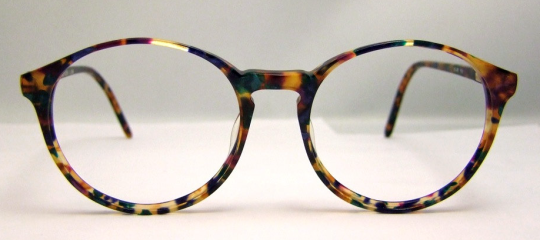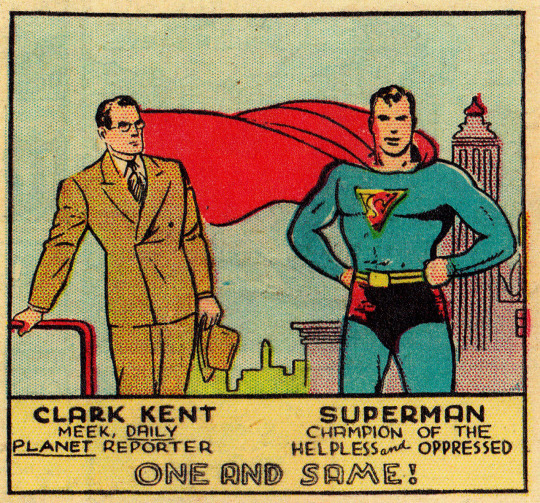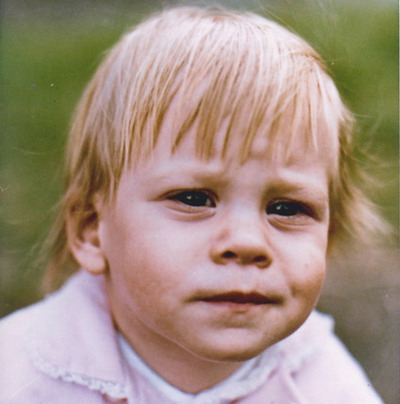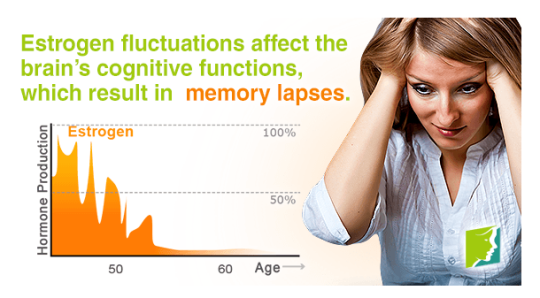
I’ve had a pair of distance glasses since freshman year of college, when I noticed that I was having serious trouble seeing what the professor was doing, or his/her facial expressions. It’s hard to say if that was when I genuinely started to need them, or if I was just taking big, freshman year seminars in university-size halls — much larger than my high school classrooms — and I actually had to start paying attention in class again post-senior year of high school, so reading whatever was on the board or on slides (this was pre PowerPoint. That’s how old you are when you are BA 1990) mattered.
I also got the glasses, however, because I wanted to try on a new look. College was in a new place, with new people, and since I’d already been the same me for 17.5 years, it seemed like time to do something different there too. Plus, since I only had to wear my glasses for class and for movies, it was sort of the best of both worlds. I could put them on when I needed them, and people would notice and say, “You wear glasses?” and have to look at me again — because we know that for women, a change in appearance isn’t just about how we look, it’s about who we are. Mind you, we, women, aren’t the ones who came up with that, that’s just how the world is. This is what every red carpet and every job interview is about, as well as every scene in a movie where the girl takes down her hair and takes off her glasses and is suddenly a bombshell, as if she weren’t before, and why men feel compelled to constantly make that the topic of conversation when it really isn’t. Some like to say it’s because “men are visually driven,” but I think that’s just a nice way of saying that they’re either evil, or dumb. I don’t think either of those things, but I can’t tell you how many times I’ve gone to a wrap party and had none of the guys I just worked with for two months recognize me because I was no longer wearing ripped jeans and a dirty t-shirt. But, as I’ve talked about before, the fact that how I look matters way more than it should is just one of those realities I’ve finally accepted as an adult, so I try to work with it because what else can you do?
Part of what made me okay with trying glasses at college was that it was the first time that I was actually okay with looking “brainy.” First of all, growing up in the American suburbs, or at least in my suburbs in South Orange, New Jersey, being called anything with “brain” in it was an insult you wanted to avoid. At my grade school in particular, that meant getting put in the same category as Daniel Martins, who even I found annoying because he always had to boysplain (we didn’t know what that was back then, but he was doing it) everything to everyone with the most complicated combination of vocabulary imaginable. While I, too, had always received encouragement from my parents and teachers for being creative and clever, I was basically shy, and by sixth grade, there were other factors at play as well. I was a year younger than everyone else, and I’d already had trouble keeping up with how the rules for what we were supposed to do as girls seemed to keep changing every year — how clothes and hair, which I’d always ignored, suddenly mattered more than anything else; how you were supposed to not like boys, and then suddenly you were supposed to like them again. Now, it seemed that you could get away with being smart if you were a boy, particularly if you played soccer, but if you were a girl, it was not an option. You just didn’t see images of girls or women being smart in movies and TV shows of the 70s and 80s, let alone positive images. Velma from Scooby Doo was one of the few smart chicks, and who wanted to be fat, glasses-wearing Velma? And remember this awesome ad that summed up the conundrum? Amazing how it acknowledges that women don’t get glasses because they don’t want to look bad (thanks to, again, television) and makes them look incredibly stupid for feeling that way, until the man saves the day by making Alice get glasses and telling her she looks great — and then the ad ends on his face. Yeah, no wonder that when disposable, soft contact lenses became widely available in the 1980s, pretty much all of my glasses-wearing friends got them (and so did my dad, who, remember, grew up in this era –>

) so that their faces would no longer be branded with these marks of their unattractive intelligence. But in the environment of Stanford, people didn’t hide that they were smart. It wasn’t exactly that you were super proud of it (although some people, not realizing that this wasn’t their high school and that the playing field had way changed, foolishly tried that). It was, at least for me, that now it was a non-issue, because it was a given that we all had a base level of brainpower. That was a big part of why I was finally able to be myself at college in a way that I’d never been before — and why I was okay with getting glasses.
I got my first pair of “fashionable” glasses after I moved to New York for grad school. My old pair had been plain, black, roundish, and serviceable. My new pair I bought at a place on East 9th Street called Myoptics, back when the East Village was still hip and dirty and had more junkies than strollers. They (the glasses, not the strollers) were big and round and tortoise-shell, sort of Sally Jesse without the red, and I chose them for the reasons your average 24-year-old makes a decision about what to wear on their face: because the style was in fashion, because they were one of the two cheapest pairs there, and because the guy selling them told me I looked good in them. Parts two and three in that equation no doubt worked together: the store clerk realized that these were the only glasses I was likely to buy, so of course he told me I looked good in them, and his was the only opinion available in the moment since it was 1992 or so and pre-smartphone/pre-social media/pre-being able to solicit the feedback of all of your friends in three taps. But whatever drove the choice involved, I did believe the glasses looked good on me, and probably wore them a little more often because of that, but still seldom. My prescription hadn’t changed enough for me to need them, and again, it was the element of dress-up that I liked: being able to put on a new identity sometimes, but also take it off.
I didn’t buy another pair of glasses for over 20 years. The motivation was part Groupon, since Damon and I got one for eye exams and frames at a local Brooklyn eyeglass place. Also, my eyes did seem more blurry in the mornings especially, and it suddenly occurred to me that not being able to recognize people from far away was perhaps a liability considering I needed to identify them in order to work with them, especially in situations where I wasn’t seeing the same people every day, which is basically every day I go to work.
But there was another reason too. I had started to notice that a lot of women my age and upwards were looking better to me with glasses, and I realized that it was because glasses helped obscure what was going on around their eyes: bags and wrinkles. The bags under my eyes, in particular, had recently become the most disliked feature of my own face. In my bored perusal of celebrity magazines from the client tables on commercial jobs, I’d seen the interviews with “aging” actresses (so, like, 35) who talked about how they felt like the main difference with looking good as they got older was that on the days when they got enough sleep and took care of themselves, they looked great, but those other days? Those were the problem. Working in production, those “other days” were, again, pretty much my every day. Having to get up at 4, 5, or 6 am is always cruel if sadly not unusual, and add to that the inconsistency of having your wake-up times always shifting, from job to job, week to week, or even weekday to weekday as we move from Monday to Fraturday. Some people can adjust to that, but I am a lifelong bad sleeper. As a kid I had trouble falling asleep, or getting back to sleep if I woke up in the middle of the night, thanks to worries about nuclear war and sudden attacks of stomach flu (I’d only had it once, but I was a hypochondriac and that was at the top of my Most Dreaded Illnesses list since I hated throwing up. Well, along with elephantiasis, but I didn’t know anyone personally who’d had it, so I only spent maybe one out of every 15-20 nights lying awake worrying about that). I mostly outgrew those fears — and, you know, Gorbachev happened — but I developed new ones, or just things that I would obsess over at all hours because I couldn’t turn off my head. And when you chronically don’t sleep well, having to get up early becomes a source of stress, because between turning over and over your missed man opportunities and the terrible things that asshole said about your script that you can’t admit might be right, you lay awake and tell yourself not to look at the clock, and try to pretend it’s not as late as you think it is, and that you don’t have to get up and be a functional human being in just a few, short, diminishing-by-the-minute hours. Therapy, meditation, vodka, Ambien, Restoril, Benadryl — yes, I have tried them all, with varying degrees of success and addiction. Knowing, at this point, that I can get through a 12-hour day at work on four hours of sleep definitely helps, as does accepting the fact that this is me and I just suck at this sleeping thing. But none of it helps my face.
So, glasses. Why not, if my eyes needed them more too? Only it turned out that they didn’t. My distance prescription hadn’t actually changed. In fact, the optometrist said, my eyes were slightly better than my prescription.
“Yeah, I guess either your eyes have gotten better or whoever gave you these gave you slightly more than you needed,” he said, referring to my 1990s Fashion Glasses. “But you do now have a slight need for near vision.”
In other words, reading glasses. This was not completely unexpected. I’d worked with enough people five to ten years older than me to know that somewhere during the 40s, I was going to have trouble reading the scene numbers on the miniature version of the call sheet that was the front page of my sides, or the teeny-tiny numbers on that stupid dial used to change frequencies on the older generation of Lectrosonics wireless mics, and then it would go downhill from there. Indeed, the need for reading glasses comes on fast, and hits you right in the midlife crisis. Not long ago, I went out to dinner with friends around my age and we all talked about how we were having trouble reading the menu without holding it far away, and how having longer arms suddenly became an advantage in the fight against admitting that you were getting old (which of course meant that men had it over us, as per everything). I had noticed all of this to a limited degree, mainly when I was trying to read while wearing my distance glasses, so I thought it might be time.
Nevertheless, my optometrist said, “I’m going to give you the near vision prescription, but you don’t have to fill it, since it’s pretty slight.” I felt good about that. “Progressives are expensive, and your eyes are likely to get much worse in the next few years, so you might want to wait until you really need them.” Yeah, not so good about that, but luckily my cheap bastard side had fastened on the “You don’t have to spend $300 right now” part, softening the blow (it’s always a surprising bonus when the Cheap Bastard brings something positive to the situation. It’s like she’s showing up to the party with a bottle of $5 wine that turns out to be really good: who knew she could pull that off?).
The upshot of all of this was that I didn’t really need new glasses at all — but at this point, I’d decided that I wanted them. I had not only begun to convince myself that I would look better with glasses, but I had already started to picture myself as Someone Who Wore Glasses. Plus, you know, I had a Groupon. So I got a new pair that was black and rectangularish and narrow. Damon called them my Sexy Librarian Glasses. They were so different from my 90s Fashion Glasses that you’d wonder how both could look good on the same person. And yet, I did choose both, because, once again, the Sexy Librarians were in fashion, they were one of the cheapest pairs there, and someone (this time my spouse) told me they looked good on me.
Now, I had to get used to my face with glasses being my normal face, and that is weird. It’s not that I’ve been looking at the same face for 47 years, because I obviously have not.

Still, it’s been pretty similar for about 25 years, and most of the changes have happened gradually. I’ve had moles removed, and carcinomas (the type of skin cancer that doesn’t kill you but is your skin’s way of saying, “I told you you were going to get old and regret this sun-worshipping bullshit some day”), added scars for those along with the bags and wrinkles, and changed the arrangement of hair around it all, but there’s really nothing else like this suddenly adding a permanent fixture to your face that wasn’t there before, unless you get a new nose. I had to get used to being the sexy librarian, even though I did not, in fact, feel any more sexy, or more like a librarian, and truly, I don’t think I looked much more like one either. But I looked different.
The world in general did not react. A couple of my friends may have complimented me, but nobody at work said anything — although many of my workmates did, again, stop recognizing me at first glance. Case in point: after I’d been wearing the Sexy Librarian Glasses for maybe six to eight months, I went to the annual holiday Hat Party, an event thrown by some of my freelance colleagues where I literally knew almost everybody there and had for at least ten years, and I had to introduce myself to half them or wait for them to do a double-take. To be fair, the fact that I was unintentionally incognito was probably also due to the fact that I was wearing nice clothes, and a hat, and this was somewhat confirmed when someone who had at first not recognized me said, in an appreciative tone, “Wow, you’ve really taken it up a notch!” Clearly, my work friends will never see me as someone who wears girl outfits.
But there was a real existential crisis waiting to happen, and it happened, when I lost those glasses. The preamble/preface/forward/table of contents to the crisis was that I literally had no idea how I lost them, one day they were just gone. I’m pretty sure the last time I saw them I was in the car, but beyond that, what happened is a complete mystery. Absent-mindedness like this is happening to me more often, and mostly I’ve chalked it up to having too much going on, but there’s this creeping suspicion I have, based, like most of what I know about aging, on things my friends tell me and that I find in internet searches like this, that it also has to do with declining estrogen, which means approaching menopause to those of you not in the know (did you know there was a website called http://www.34-menopause-symptoms.com/ ? Aren’t you glad you know it now? I especially love this image and very technical infographic

with the “Age” arrow pointing into oblivion). So losing my glasses sucked as a just really obvious instance of potential that. But what affected me more than that (because I’m 47, and have been through fertility treatment, and so the ability of my hormones to turn batshit was not unknown to me) was that I started wearing the 90s Fashion Glasses to work — I’d kept them around as my back-up pair — and that was when I started getting compliments. I heard, “Glasses suit you,” and “I really like your glasses,” both from people who had definitely seen me several times in the Sexy Librarian Glasses and never said anything. Could this just be because round glasses were back in style, or was it really that the round glasses were more me? And then what did this say about the fact that my husband had a distinct preference for the Sexy Librarians? Because, when it came to ordering new glasses, Damon was typically circumspect about his opinion.
“Anything but the round ones,” he said, ruling out not only the 90s Fashion Glasses, but 80% of what Warby Parker has. “I just think you look better in the ones you lost. Plus, I’m the one who has to look at you all the time.”
This is a good point. There’s nobody who looks at my face as often as he does, even I don’t, and I do want to be attractive to my mate. But I am an adult, a woman, and a feminist, so I was determined to pick the glasses I liked best on my face goddammit.
It wasn’t until I went to the Warby Parker Soho store and was confronted with two store-length walls of glasses, however, that I realized I didn’t really know what exactly that meant. After trying on oh, 20 pairs, I was ready to admit that I knew basically nothing about how I wanted to look. You’d think you could go with your gut on this. You’d think that you’d put something on your face and it would be like “This is it, this is me,” like falling in love, or finding the perfect apartment. But then, when you realize you’re talking about adding a permanent new fixture to your face that can make you look so different that people can actually stop recognizing you, you start to think about the power of potential. So, while it starts out with, “Is this me?”, it quickly devolves into, “But do I want to look like ‘me’ any more? Who is this ‘me’ anyway? Should I be going with the glasses that make me comfortable, or with the ones that make me uncomfortable, because if I really change how I look, to the point where people are really looking at me differently, maybe I can change who I am?” And since I know I’m not going to get that new nose, or have any anti-aging work done to my face because fuck that, or dye my hair (I don’t want to dye out the grey because again, fuck that, and while dying it a totally different color is another, potential-identity-changing alteration a woman can make, I can’t afford to do it right and maintain it. Plus, I actually like my hair color, it’s doing a good job of hiding the grey, and if I dye it, who knows what will grow back in its place?), this is sort of my only option.
In the end, I picked a pair that I thought looked…nice. They were not big, round and guileless like the 90s Fashion Glasses, or as severe/intellectual as the Sexy Librarians. Maybe some day I’ll be ready to get all Iris Apfel on my glasses and make a truly personality-defining statement with them, but for now, wearing glasses most of the time is enough of a change. I don’t feel that good about the fact that I’m partly wearing them to hide behind, but aging is hard. I don’t want to be vulnerable to what the world thinks, but this occasionally-stupid planet is where I live, and while my view of myself is ultimately up to me, I’m never going to be able to totally exclude the views of my mate, my parents, my friends, my colleagues, that dude at the store, and, to some degree that I wish I could prevent but I can’t, our culture. So for now, I’ll choose look a little different than before but not too much, and maybe a little less obviously tired all the time, and that will have to do.
